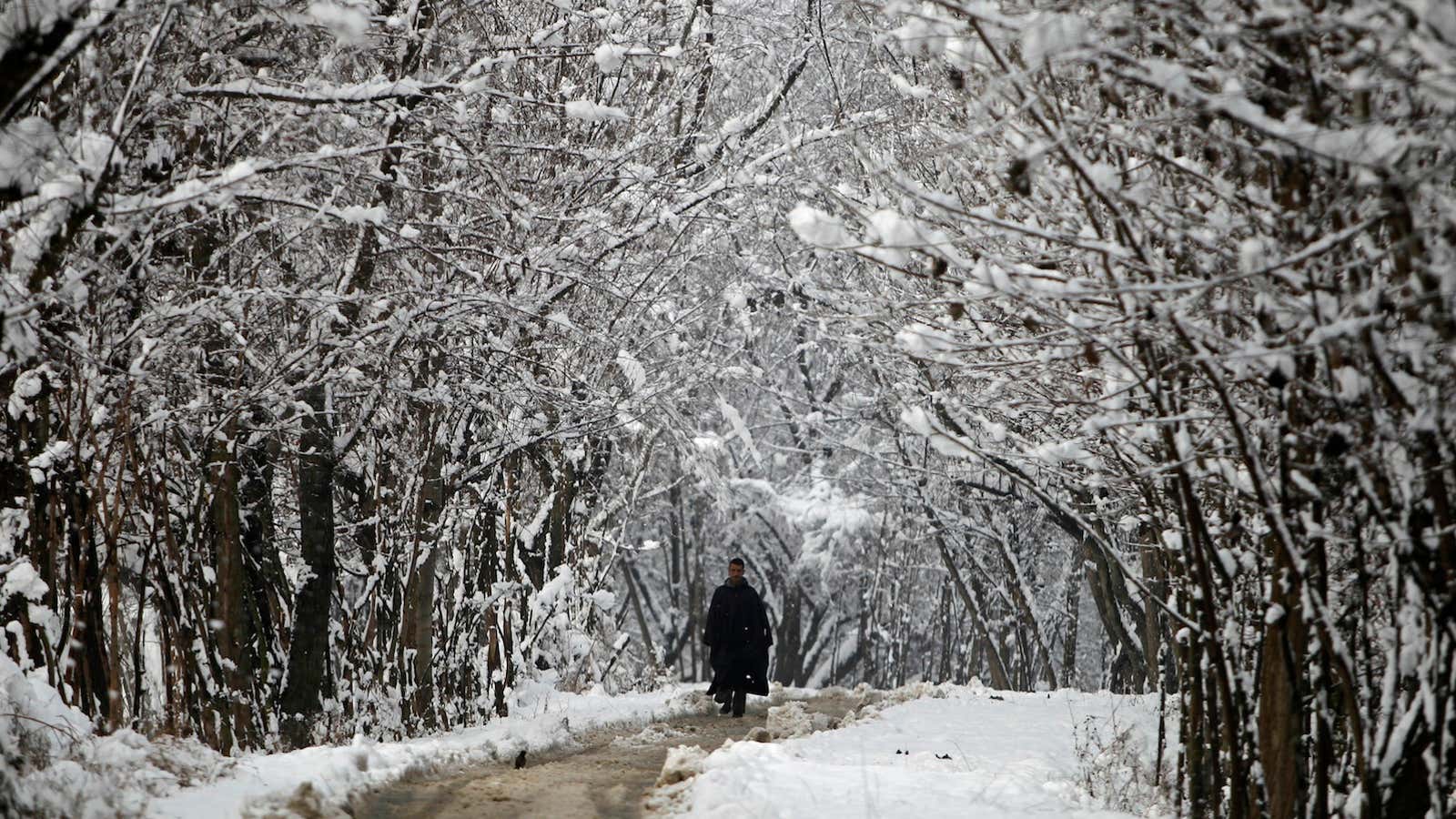Ashvin Kumar is an Oscar-nominated filmmaker. In 2010 he made a remarkable documentary—Inshallah, Football—tracing the story of a young soccer player in Srinagar who gets an invitation to travel to South America to play in a minor league. His passport application was rejected because his father was a former Kashmiri militant who was trained in Pakistan and later spent a few years in Indian prisons.
The Censor Board of Film Certification in India, then headed by Bollywood star Sharmila Tagore, gave Inshallah, Football an ‘A’ (adults only) certificate because the film carried references of the Indian army torturing the protagonist’s father. India does not have a tradition of documentaries playing in movie theatres and television does not show films that get an ‘A’ certificate during prime time. So according to Kumar, his film was virtually banned in India.
Fast forward four years and Vishal Bhardwaj—director, music composer and singer—makes Haider, his third instalment in his Shakespearian trilogy (Maqbool, (adapted from Macbeth) and Omkara (from Othello) were the first two). And he sets his version of Hamlet in Kashmir in 1995, when the insurgency in the state was at its peak.
Reports in India said that the censor board approved Haider after asking for 41 cuts and the film was given a U/A certificate (equivalent of PG 13 certificate given by the Motion Picture Association of America). It is hard to say what impact the film would have had if the censors had allowed the director’s cut of the film to pass, but Haider is a harrowing, powerful study of Kashmir in flames, seamlessly layered with the heart-wrenching saga of Hamlet.
And it helps that Bhardwaj joined hands with writer and journalist Basharat Peer, whose 2010 book Curfewed Night: A Frontline Memoir of Life, Love and War in Kashmir is considered one of the most authentic, personal narratives about the lives of Kashmiris during the insurgency.
There have been a few indie films that explored the Kashmir situation—Harud (the director of the film Aamir Bashir plays a supporting role in Haider), Zero Bridge and the least political of all, Valley of Saints, which won the audience award at the 2012 Sundance Film Festival. But despite festival runs in bigger cities, none of these films reached mainstream audience in India, although Harud had a small release. There was the 2000 Bollywood film Mission Kashmir. But that is mostly remembered for launching the career of Hrithik Roshan and its somewhat naïve take on the insurgency in Kashmir.
And so Haider with all the harsh truths of Kashmir is the first such Bollywood film to reach mainstream audience in India. It is remarkable that a studio like UTV—now partially owned by Disney—backed such a strong political film where there are many scenes of villagers being rounded up by the army, protesters demanding answers about the missing people and some very difficult torture scenes.
The next few days will reveal whether the Indian audience will accept Haider, go beyond the scenes of violence and also see it for its portrayal of the soulful dark tale of Hamlet. Already an anti-Haider campaign is building up on Twitter under the hashtag #BoycottHaider with people claiming the film is anti-India and anti-Indian army, and that it does not balance the story by also showing the plight of the Kashmiri Pandits. The hashtag is trending high in India.
In Bhardwaj’s defense, the film does mention the plight of the Pandits. And the real message of Haider is that revenge only leads to further revenge, and that the acts of violence must end.
The end credits of the film include a statement thanking the Indian army for rescuing hundreds of thousands of Kashmiris during last month’s floods that ravaged the valley. Another statement says that the situation has improved considerably in Kashmir—tourism is up and the film was mostly shot in the valley with many extras from the area.
All of this may not be enough to placate those opposed to the film. But Haider is an important and a brave film. If the Kashmir situation has to be resolved, Indian audiences need to see what happened in the state to the Kashmiri Muslims as well as to the Hindu Pandits. That conversation is essential for real peace in the state. Haider is only a start.
